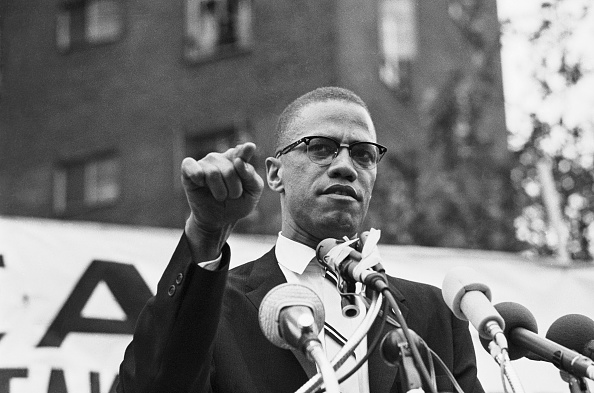New York – A New York judge on Thursday threw out the convictions of two men imprisoned for decades over the 1965 assassination of civil rights leader Malcolm X, acknowledging a gross miscarriage of justice in one of the most high-profile murders in American history.
Judge Ellen Biben granted the exonerations of Muhammad A. Aziz and Khalil Islam to a burst of applause from the courtroom, a historic move that amends the narrative behind one of the US civil rights movement’s deepest wounds.
“I regret that this court cannot fully undo the serious miscarriages of justice in this case and give you back the many years that were lost,” the judge told Aziz and the family of Islam, who died in 2009.
For more than half a century the official record has held that three members of the Black nationalist group Nation of Islam – which Malcolm X had recently renounced – shot the iconic leader when he arrived to speak at the podium of a Harlem ballroom.
Who killed Malcolm X?
Aziz, Islam and a third man, Mujahid Abdul Halim, were convicted in 1966 – but historians have long cast doubt on that thesis.
Halim – now 80 and released from prison in 2010 – confessed to the murder but maintained the innocence of the other two.
And in 2020, the case was reopened following the release of a Netflix docuseries “Who Killed Malcolm X?”
The 22-month investigation conducted jointly by the Manhattan district attorney’s office and lawyers for the two men found that prosecutors, the FBI and the New York Police Department withheld evidence that would likely have led to their acquittal.
Aziz, 83, was sentenced to life in prison in 1966 but was released in 1985. Also sentenced to life, Islam was released in 1987 and died in 2009.
Manhattan District Attorney Cyrus Vance said the probe made “clear these men did not receive a fair trial” and apologized on behalf of the law enforcement community for the “decades-long injustice.”
“We can’t restore what was taken from these men and their families, but by correcting the record, perhaps we can begin to restore that faith,” Vance said.
‘Corrupt to its core’
After Malcolm X was shot dead on February 21, 1965, Halim was taken into custody at the scene with a bullet wound to the leg.
Aziz and Islam were arrested several days later. Both denied involvement in the assassination and provided alibis for where they were at the time of the shooting.
“The events that brought us here should never have occurred; those events were and are the result of a process that was corrupt to its core – one that is all too familiar to Black people in 2021,” Aziz told the court.
“While I do not need this court, these prosecutors, or a piece of paper to tell me I am innocent, I am very glad that my family, my friends, and the attorneys who have worked and supported me all these years are finally seeing the truth that we have all known officially recognized,” he added.
Saying the convictions “deceived and cheated” the public, civil rights attorney David Shanies told the court the two men became “victims of the same racism and injustice” that Malcolm X had battled.
Shanies and the Innocence Project, a nonprofit which has secured the exoneration of hundreds of wrongfully convicted prisoners in the United States, collaborated with Vance’s office in re-investigating the case.
Lingering questions
The wrongful convictions mean the true perpetrators – who are believed to be dead – may never be held accountable for killing a towering figure whose teachings still underpin today’s struggles for Black rights in America.
The lengthy investigation did not identify the assassins or offer an alternative explanation for the murder.
And key questions remain, namely how did US intelligence, which had long surveilled Malcolm X, not know the leader was under threat or do anything about it?
Born Malcolm Little in 1925, Malcolm X became one of the most influential African Americans of the 20th century along with Martin Luther King Jr.
As a young man he fell into petty crime and while in prison became a devout follower of the Nation of Islam, a religious and political organization that advocates Black nationalism.
Upon his release, he changed his surname to “X,” symbolic of the original name of his family lost under slavery.
He rose to prominence as a minister and spokesman for the NOI, advocating Black self-dependence and esteem. He also did not shy away from the use of violence for self-protection.
Becoming disillusioned with the group, Malcolm X broke away in 1964, forming the short-lived Organization of Afro-American Unity to continue advocacy for Black rights.
Follow African Insider on Facebook, Twitter and Instagram
Source: AFP
Picture: Getty Images
For more African news, visit Africaninsider.com


